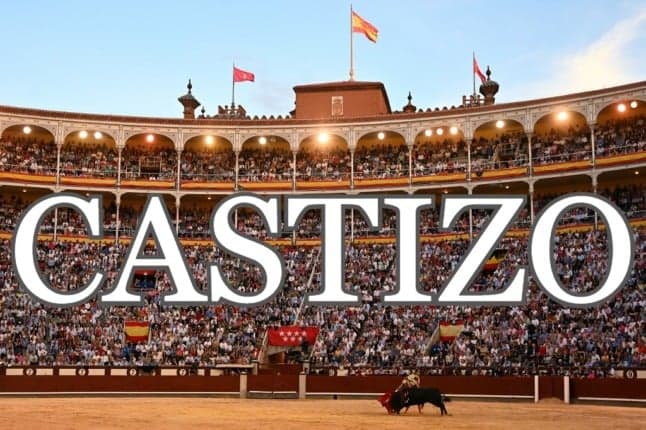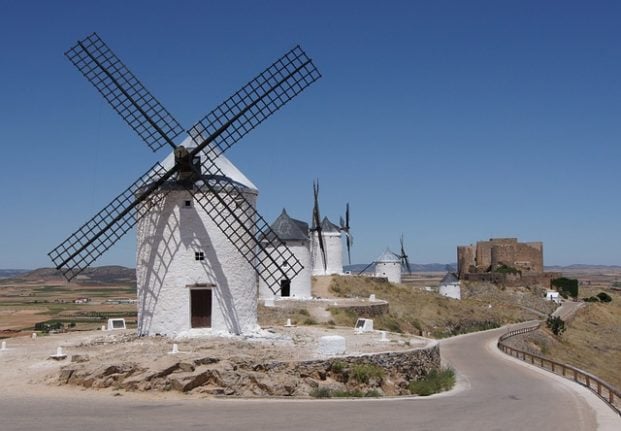Spanish Word of the Day: Castizo

Here’s a word that’s hard to translate but usually describes something or someone that’s authentically Spanish.
Castizo is an adjective you’ll often hear in conversation with Spaniards when they’re referring to a person, a place or an object that conjures up images of traditional Spain.
It doesn’t necessarily have to refer only to what’s authentically Spanish - you could refer to a place or person from the UK, the US or Russia as being castizo too - but more often than not it’s used to speak about Spain and its regions.
Even though the image abroad of what constitutes something ‘authentically’ Spanish is usually that of Andalusia, among Spaniards the most pure-blooded region in the country is Castilla-La Mancha, quite possibly because modern Spain has its origins in the Kingdom of Castile.
Think Don Quijote, Toledo, manchego cheese and jamón serrano rather than bullfighting, sherry and flamenco.
Despite being a cosmopolitan and international city, Madrid is still generally considered Spain's most castizo city.
READ ALSO: What are the regional stereotypes across Spain?

Windmills dotted across the landscape of Castilla-La Mancha conjure up feelings of 'castizo' Spain for Spaniards. Photo: Wikiimages/Pixabay
In fact, casticismo was a literary and cultural movement that emerged in Spain in the 18th century to promote the national character and Spanish race in opposition to the influence France and the Age of Enlightenment were having on Spanish society at the time.
It’s worth noting that castizo derives from the word casta (cast, lineage, quality of something).
So if you’re referring to a person as castizo/a, it’s like saying they’re pure-blooded, of unmixed ancestry or descent, but it can be used to refer to someone who’s from a wealthy and powerful family.
There was once more of a racial association to its usage, as colonial Spain used the term castizo to define the purity of blood (and skin) of mixed-race people in Latin America, but nowadays castizo is more about origin and tradition than it is about race, although it can sometimes be linked to high class.
Examples:
Jose María no podría ser un andaluz más castizo; le gustan los toros, el flamenco y la fiesta.
José María couldn’t be a more authentic Andalusian; he likes bullfighting, flamenco and partying.
Mercedes es de una familia castiza con muchos terrenos.
Mercedes's family is of good lineage and owns lots of land.
Castizo can also be used to describe a place, custom, language, object that is authentic and true to its roots, unchanged and unadultered.
Examples:
Las Letras es el barrio más castizo de Madrid.
Las Letras is the most authentic Madrid neighbourhood.
Habla un catalán castizo, sin usar una sola palabra en castellano.
She speaks undiluted Catalan, without using a single Spanish word.
¿Hay algo más castizo que comer rabo de toro en Madrid el Día de San Isidro?
Is there anything more authentic than eating oxtail in Madrid on San Isidro Day?
READ ALSO:
Comments
See Also
Castizo is an adjective you’ll often hear in conversation with Spaniards when they’re referring to a person, a place or an object that conjures up images of traditional Spain.
It doesn’t necessarily have to refer only to what’s authentically Spanish - you could refer to a place or person from the UK, the US or Russia as being castizo too - but more often than not it’s used to speak about Spain and its regions.
Even though the image abroad of what constitutes something ‘authentically’ Spanish is usually that of Andalusia, among Spaniards the most pure-blooded region in the country is Castilla-La Mancha, quite possibly because modern Spain has its origins in the Kingdom of Castile.
Think Don Quijote, Toledo, manchego cheese and jamón serrano rather than bullfighting, sherry and flamenco.
Despite being a cosmopolitan and international city, Madrid is still generally considered Spain's most castizo city.
READ ALSO: What are the regional stereotypes across Spain?

In fact, casticismo was a literary and cultural movement that emerged in Spain in the 18th century to promote the national character and Spanish race in opposition to the influence France and the Age of Enlightenment were having on Spanish society at the time.
It’s worth noting that castizo derives from the word casta (cast, lineage, quality of something).
So if you’re referring to a person as castizo/a, it’s like saying they’re pure-blooded, of unmixed ancestry or descent, but it can be used to refer to someone who’s from a wealthy and powerful family.
There was once more of a racial association to its usage, as colonial Spain used the term castizo to define the purity of blood (and skin) of mixed-race people in Latin America, but nowadays castizo is more about origin and tradition than it is about race, although it can sometimes be linked to high class.
Examples:
Jose María no podría ser un andaluz más castizo; le gustan los toros, el flamenco y la fiesta.
José María couldn’t be a more authentic Andalusian; he likes bullfighting, flamenco and partying.
Mercedes es de una familia castiza con muchos terrenos.
Mercedes's family is of good lineage and owns lots of land.
Castizo can also be used to describe a place, custom, language, object that is authentic and true to its roots, unchanged and unadultered.
Examples:
Las Letras es el barrio más castizo de Madrid.
Las Letras is the most authentic Madrid neighbourhood.
Habla un catalán castizo, sin usar una sola palabra en castellano.
She speaks undiluted Catalan, without using a single Spanish word.
¿Hay algo más castizo que comer rabo de toro en Madrid el Día de San Isidro?
Is there anything more authentic than eating oxtail in Madrid on San Isidro Day?
READ ALSO:
Join the conversation in our comments section below. Share your own views and experience and if you have a question or suggestion for our journalists then email us at [email protected].
Please keep comments civil, constructive and on topic – and make sure to read our terms of use before getting involved.
Please log in here to leave a comment.